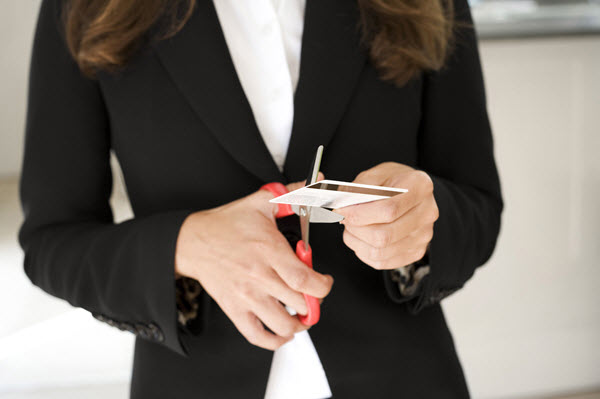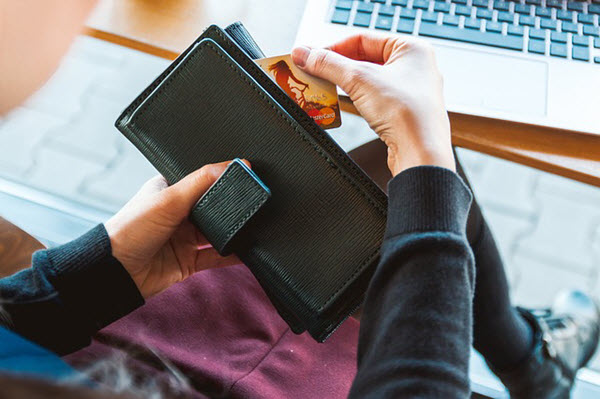Fact: Retail therapy is not a medically-verified form of therapy.
Just over thirty years since the phrase was first coined to flag up American consumers’ habit of trying to shop their troubles away, many no longer see the irony in the phrase and adopt retail therapy as a form of catharsis.
As Mary T. Schmich told us, introducing the phrase to the general public in the Chicago Tribune back in 1986: “We’ve become a nation measuring out our lives in shopping bags and nursing our psychic ills through retail therapy.”
Others don’t care much for rationalizing the process and just shop on instinct. They, too, fall into the category of impulse shoppers.
Does this sound like you?
The diagnosis
If you’re not sure if you are already an impulse shopper or not, ask yourself the following questions:
- Do you think about shopping all the time?
- Do you shop or buy things to cheer yourself up?
- Have you been late for work or an appointment because you were shopping?
- Do you need to shop more than you used to, to get the same hit?
- Have you tried to shop less– and failed?
- Does it make you feel bad if something stands between you and shopping?
- Do you feel guilty after shopping?
If you answer Yes to more than one of these questions, you probably have a problem. Even if you just ticked Yes for one of them, the fact that you’ve read this far suggests you would probably appreciate some tips on how to deal with your compulsion.
Let’s have a look at what you can do to curb your impulse shopping.
Therapy for retail therapy
Quitting any addiction is a matter of self-control. If you have that level of self-control at your fingertips, it wouldn’t be an addiction, would it?
A more effective way to improve your level of self-control is to practice certain rules, processes and restrictions. You should have concrete ideas that can help you be more disciplined. After a few weeks, these rules should feel like automatic principles and your self-control muscles should be nice and toned.
Cut up the cards

Maybe you need your cards on hand for emergencies and for paying the occasional bill. But, when you’re going to work or to shop, leave the cards at home.
It’s a psychological thing.
Handing over a credit card to pay for those shoes feels abstract. You don’t see your money changing hands so your brain just enjoys the pleasure of getting new things.
If you pay with cash, on the other hand, your brain gets a jolt of pain at the thought of losing your hard-earned money. You think twice before going through with the transaction and are likely to be twice as cautious when shopping.
Make a plan
So, how do you make that budget?
Well, it all starts with a shopping list. Write down what you need to buy and if it’s unpredictably priced, like shoes or electronics, write down a limit as to how much you can spend.
Get online in advance and use a price comparison site to find the most affordable option and put that on your list. We spend more when we’re faced with unpredictable choices and that leads to panic buying.
People who shop with a list spend around one-third less than those without.
The 10-minute rule
You might not have that self-control to convince yourself not to buy that fancy item yet. If that’s the case, try to summon the willpower to walk away from it for ten minutes before paying for it. This will give your brain a chance to recover from that original rush.
Hopefully, before you return with your wallet, the appeal will have faded.
Look, don’t touch

If shopping online is your weakness, leave the devices alone.
Touch screens make you spend more. When you touch a picture of an object, it gives you the unconscious feeling that you already own it. Then, it becomes much more difficult to turn back from clicking “Add to Basket”.
Delete all shopping apps from your phone and just use your laptop or PC if you really need to shop online.
Dine well
You’ve tried a list, a time limit and a change of device. Now, it’s time to change your diet.
Before you go shopping, try eating a meal packed with carbs and protein to give your body the kind of chemicals that can make you less likely to impulse buy.
If you’re already out of the house when the whim to shop strikes, pick up a protein shake before you go any further. This kind of treat can dull your urge to splurge.
Picture a world without stuff
Impulse buyers tend not to picture the future when they’re shopping. They’re caught up in the thrill of the moment.
When you find that must-buy item, which probably isn’t a must-buy at all, stop for a moment and think about what your life will be like if you don’t buy it. Not so bad, huh? So, don’t buy it.
Be grateful for what you’ve got
‘Hashtag’ gratitude is a pointless, smug and self-congratulatory trend that helps nobody in particular. Instead, it encourages the populace to put up with the miserable conditions of late capitalism.
On the other hand, deep, heartfelt gratitude can help reduce your need for instant gratification. Spend time with the stuff that you already own, sort it, care for it and value it. According to the Association of Psychological Science, this can help you quit your addiction.
The power to curb your shopping enthusiasm is within you. But, without the right techniques, you’ll remain at the mercy of the quacks who’d sell you retail therapy as a cure for all your worries.
For more tips in an easy-to-follow guide, check out this new infographic.

The post 7 Ways To Stop Your Shopping Splurges appeared first on Dumb Little Man.
from
https://www.dumblittleman.com/impulse-shopping/

No comments:
Post a Comment